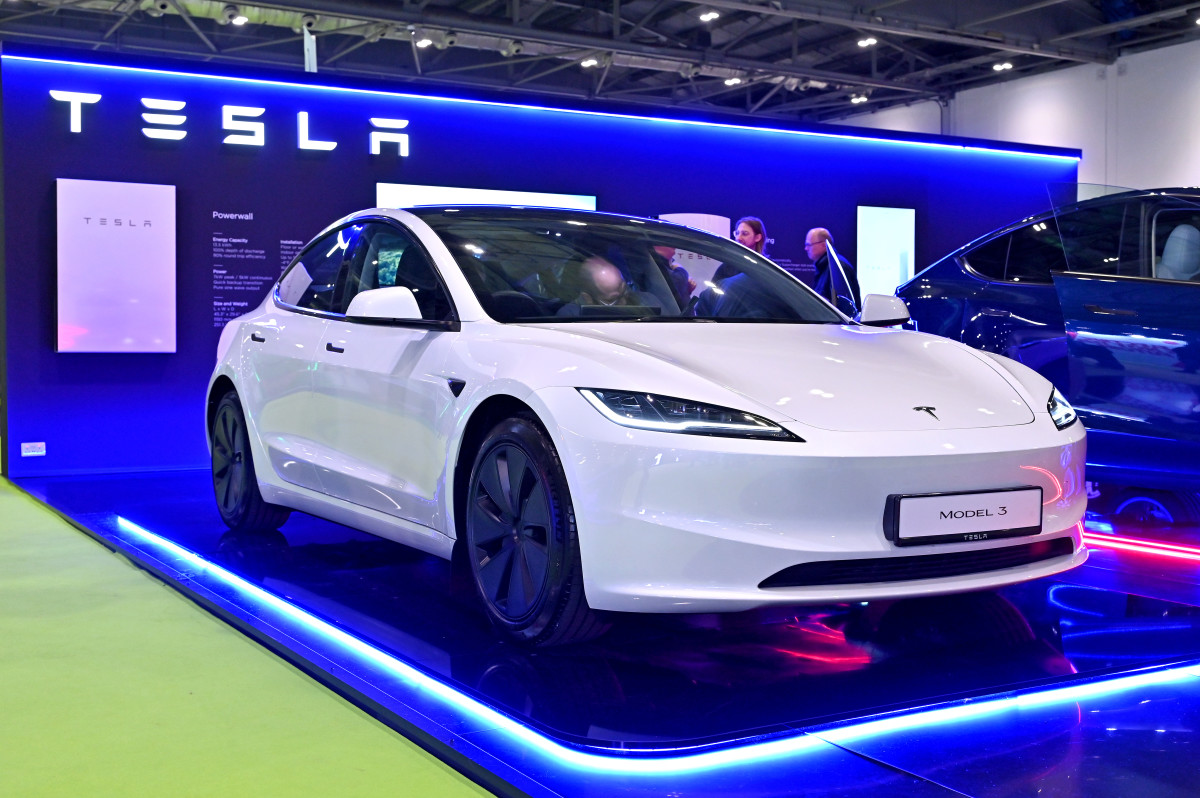
EVs are really heavy compared to their gas-powered brethren.
The heavy battery packs that power the electric motors in electric cars and enable their long trips between charging sessions tend to be the culprit of bloated EVs, which concerns Stellantis (STLA) CEO Carlos Tavares.
Related: Rivian borrows a page from Tesla's playbook with its latest update

Speaking at the automaker's Freedom of Mobility Forum, Tavares spoke at length about his concerns about the amount of materials needed to make the heavy batteries that go into consumer-facing EVs.
According to the CEO, about 1,000 pounds of raw materials are needed to construct a battery pack that achieves what he calls a "decent" range of 250 miles.
"From an environmental standpoint [...] I don't think it makes sense," Tavares said.

Many EVs on the market are largely weighed down by its large battery packs in order to appease the market's range anxiety. In order to achieve its 341 mile range, Tesla (TSLA) fits its Long Range Model 3 with a battery pack that weighs 1,060 lbs; roughly a fourth of the car's curb weight of 4,030 lbs.
The Stellantis CEO says that the auto industry needs a major breakthrough in battery science. He predicts that more efficient cars can come about if automakers decide to increase the power density of battery cells instead of adding more batteries.
"I think over the next decade we'll be able to reduce the battery pack weight by 50%, hence reducing by 50%, the use of additional raw materials against the conventional vehicle," the CEO said.
He noted that this forward vision will help reduce the need for scarce materials like lithium, which is a key element used in today's EV batteries.
More Business of EVs:
- A full list of EVs and hybrids that qualify for federal tax credits
- Here’s why EV experts are flaming Joe Biden’s car policy
- The EV industry is facing an unusual new problem
Efficiency and environmental impact concerns aside, the scale-tipping curb weights of EVs also pose a safety concern for other cars and pedestrians on the road. In remarks made in January 2023, NTSB head Jennifer Homendy noted that some EVs are heavier than their gas counterparts.
In her speech, she mentioned that Ford’s (F) F-150 Lightning EV pickup is 2,000 to 3,000 pounds heavier than the gas-powered version — which weighs up to 5,863 pounds.
“I’m concerned about the increased risk of severe injury and death for all road users from heavier curb weights and increasing size, power, and performance of vehicles on our roads, including electric vehicles,” NTSB head Jennifer Homendy said in a January 2023 speech.
“We have to be careful that we aren’t also creating unintended consequences: More death on our roads. Safety, especially when it comes to new transportation policies and new technologies, cannot be overlooked.”
Related: Veteran fund manager picks favorite stocks for 2024







